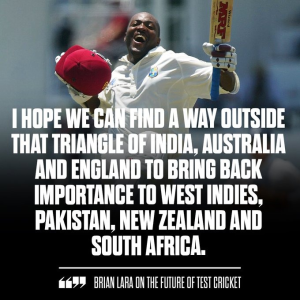- Joined
- Oct 2, 2004
- Runs
- 217,565
In an exclusive interview for PakPassion, acclaimed Trinidadian cricket commentator and journalist, Fazeer Mohammed chats with Saj Sadiq about:
- If cricket is a dying sport in the West Indies.
- Why has cricket in the West Indies suffered?
- The politics and mismanagement in Cricket West Indies.
- The failure of leadership in Cricket West Indies.
- Why emerging talent in the West Indies is more attracted to playing. franchise cricket rather than for the West Indies.
- How people from the Caribbean felt about not qualifying for the World Cup.
- Are the ICC requirements for cricket grounds unreasonable?
- If cricket is a dying sport in the West Indies.
- Why has cricket in the West Indies suffered?
- The politics and mismanagement in Cricket West Indies.
- The failure of leadership in Cricket West Indies.
- Why emerging talent in the West Indies is more attracted to playing. franchise cricket rather than for the West Indies.
- How people from the Caribbean felt about not qualifying for the World Cup.
- Are the ICC requirements for cricket grounds unreasonable?








